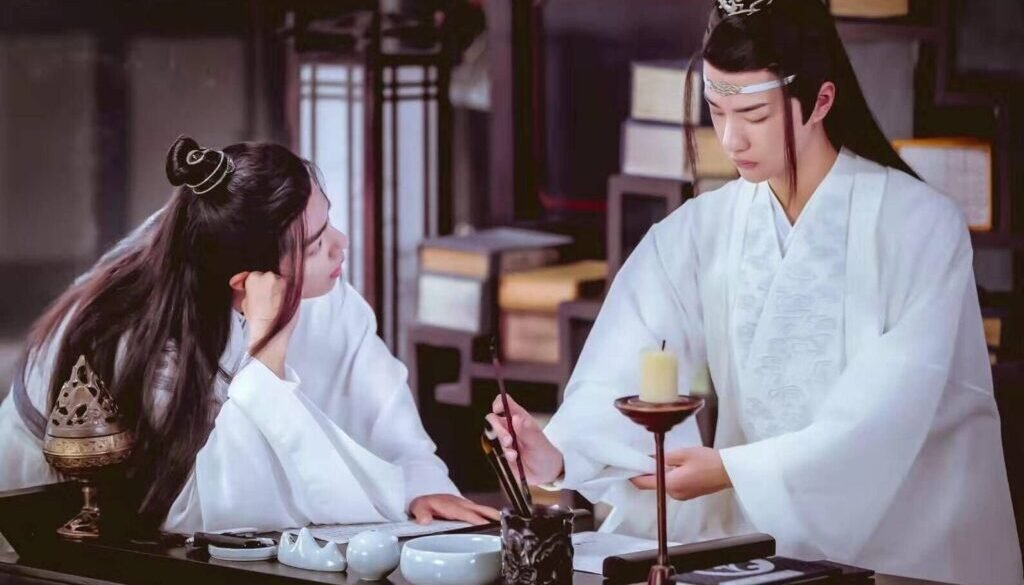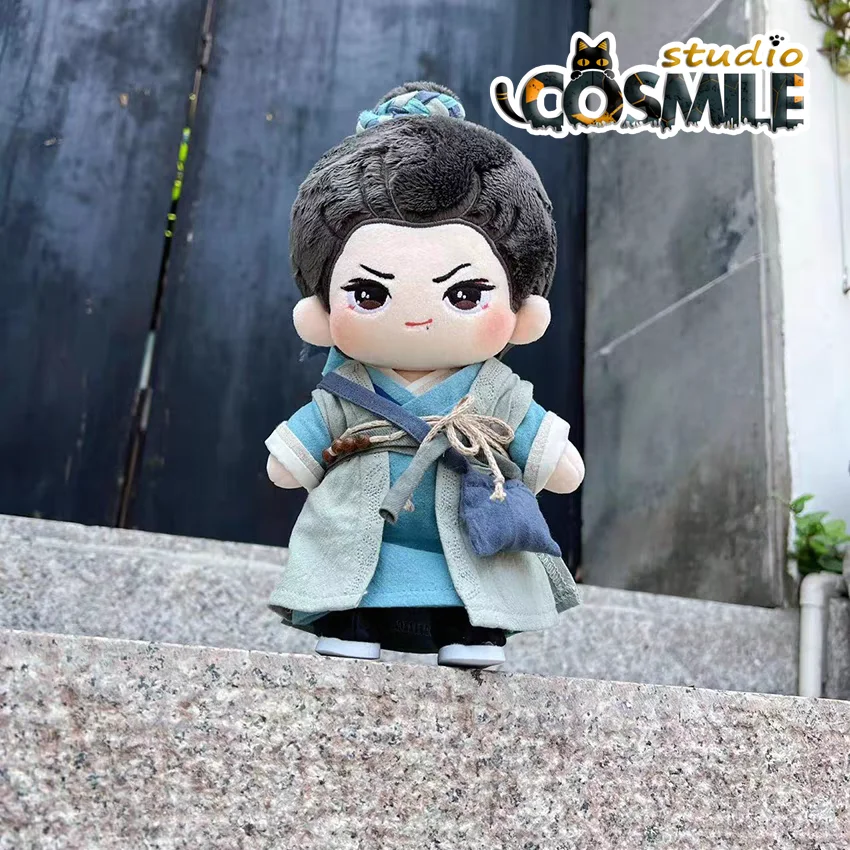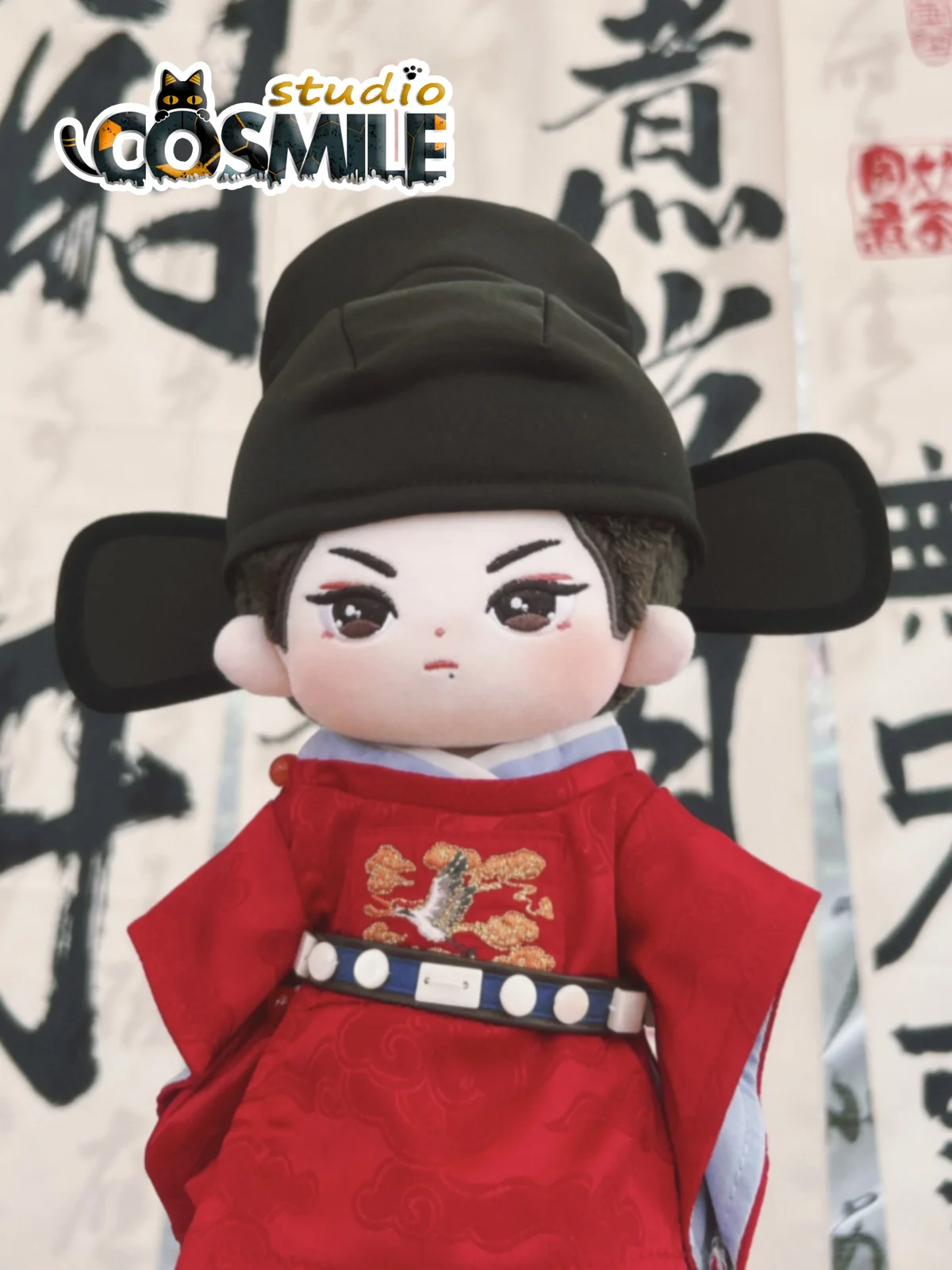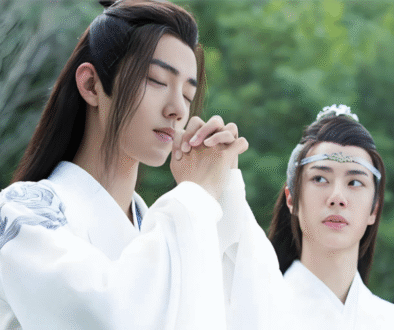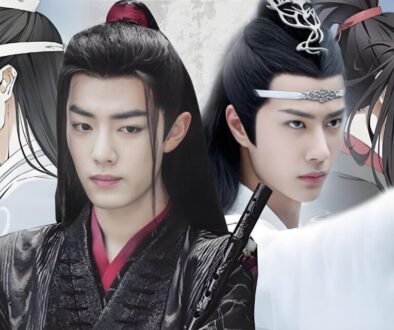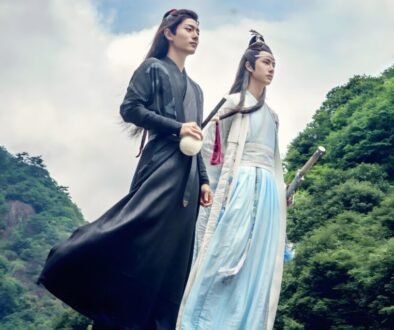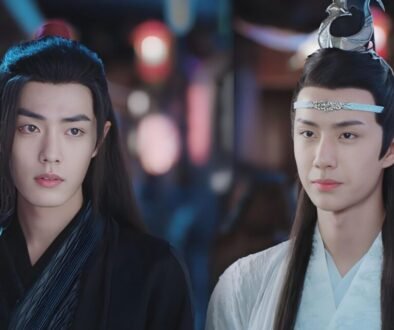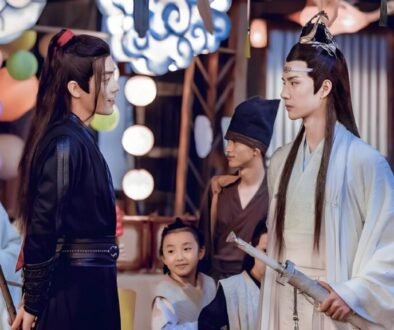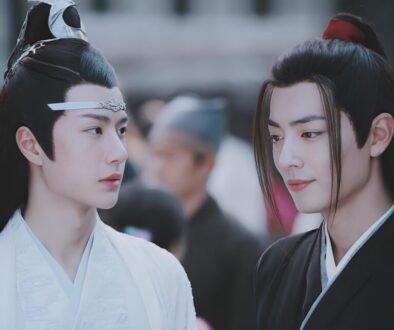Is The Untamed a BL? Truth Behind the Chinese Drama
Have you ever found yourself asking, “is The Untamed a BL?” If you’re a new viewer or just curious about why this Chinese fantasy drama became a worldwide hit, you’re not alone. The question is The Untamed a BL often pops up among international fans, especially since the show is adapted from the beloved danmei novel Mo Dao Zu Shi.
Understanding the difference matters. In the novel, the bond between Wei Wuxian and Lan Wangji is an unmistakable romance, while in the drama, that relationship is reshaped into what many call “bromance.” For viewers unfamiliar with Chinese censorship or BL (Boys’ Love) adaptations, this can be confusing—and that’s why so many people search for clarity.
By exploring its source material, adaptation choices, and the cultural impact of WangXian’s story, you’ll see why The Untamed continues to be celebrated as more than just another period drama. So, if you’ve ever wondered how this show balances BL roots with mainstream storytelling, let’s dive into the full truth behind its global success.
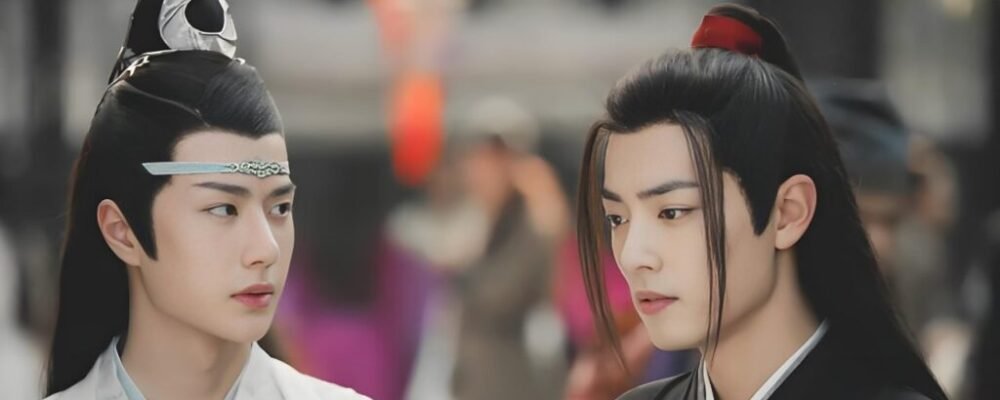
Chapter 1: What Fans Mean by BL and Danmei
Understanding “Is The Untamed a BL?” in Global Context
When international viewers first ask is The Untamed a BL, they are usually trying to understand why the series feels romantic but never openly shows a love story. This confusion comes from cultural and legal differences between Boys’ Love (BL), a genre popular worldwide, and danmei (耽美), its Chinese counterpart. While both highlight male–male relationships, their presentation in media varies depending on context and censorship.
BL as a genre has roots in Japanese manga from the 1970s, later spreading to television dramas across Thailand, South Korea, and beyond. Studies on media consumption show that BL dramas attract diverse global audiences, not limited to LGBTQ+ communities, but also fans seeking emotionally rich storytelling (see: Journal of Homosexuality, 2021, doi:10.1080/00918369.2020.1868182). By contrast, Chinese danmei literature grew as a web-novel phenomenon, often written by and for women, with strong focus on character growth and moral dilemmas alongside romance.
BL vs. Danmei – What’s the Difference?
-
BL (Boys’ Love):
-
Originated in Japan, now widely adapted in Thailand and Korea.
-
More direct romantic and physical expression.
-
Commercially accepted in many regions, marketed openly.
-
-
Danmei (耽美):
-
Chinese literary genre, rooted in online fiction communities.
-
Often set in fantasy or historical worlds.
-
Romantic subtext emphasized, but explicit depictions limited or censored.
-
From a health psychology standpoint, representation matters. Research from Harvard Medical School notes that LGBTQ+ representation in mainstream media can support identity development and reduce stigma (Harvard Health, 2022: “Why representation matters”). For many fans, The Untamed provided rare positive visibility, even if indirect.
Why “Is The Untamed a BL?” Matters to Viewers
Asking is The Untamed a BL is not just about labels. It reflects a deeper curiosity:
-
For casual viewers: They want clarity on the show’s genre before investing 50 episodes.
-
For BL fans: They seek representation, wanting to know if it offers a genuine romance.
-
For cultural critics: It’s about examining how China adapts BL content under state restrictions.
This question also feeds into fan culture globally. For instance, WangXian (the pairing of Wei Wuxian and Lan Wangji) is celebrated as a canon couple in the novel Mo Dao Zu Shi, but presented as a deep, spiritual bond in the drama. Articles like The Untamed: Evolution of Xianxia Culture explore how this adaptation reshaped Chinese fantasy storytelling.
Pros and Cons of Labeling The Untamed as BL
The Pros
-
Global accessibility: Marketing it as BL connects it with established fan communities.
-
Representation visibility: Viewers seeking LGBTQ+ narratives find resonance in WangXian’s bond.
-
Fan engagement: Online fandoms thrive on shipping culture, boosting drama’s international popularity.
The Cons
-
Censorship risk: Explicitly labeling it BL in China could have prevented it from airing.
-
Misleading expectations: New viewers may expect overt romance scenes and feel disappointed.
-
Cultural mismatch: Western “BL” expectations differ from how danmei is presented under Chinese regulations.
Balanced analysis shows that The Untamed succeeds precisely because it walks the line: it retains emotional intimacy while avoiding direct censorship violations. This tension is part of what fueled global discussion. For more on the behind-the-scenes compromises, see The Untamed Behind the Scenes.
Recommendations for New Viewers Wondering “Is The Untamed a BL?”
-
Adjust expectations: Recognize that it’s not BL in the traditional sense; instead, it’s a danmei adaptation framed as bromance.
-
Read the novel Mo Dao Zu Shi: For those seeking the full romantic storyline, the source text offers explicit confirmation of the relationship.
-
Explore fan discussions carefully: Communities like BJYX fandom celebrate the chemistry of Xiao Zhan and Wang Yibo, but it’s important to differentiate between fictional relationships and real actors. For a deeper look, see Bojun Yixiao: The Chemistry That Redefined On-Screen Friendship.
-
Appreciate cultural nuance: Viewing The Untamed as a product of its regulatory environment helps avoid disappointment and deepens appreciation for its storytelling craft.
Final Thoughts – Why the Question Still Resonates
The persistence of the query is The Untamed a BL highlights how powerful media can be in bridging cultures. On one hand, the series gave international fans access to Chinese danmei culture; on the other, it sparked critical discussions about censorship, representation, and fandom.
From a cultural perspective, The Untamed is more than a yes/no answer. It embodies the negotiation between creative expression and regulation, fan desire and mainstream acceptance. And that balance is why the show remains a phenomenon years after its release.
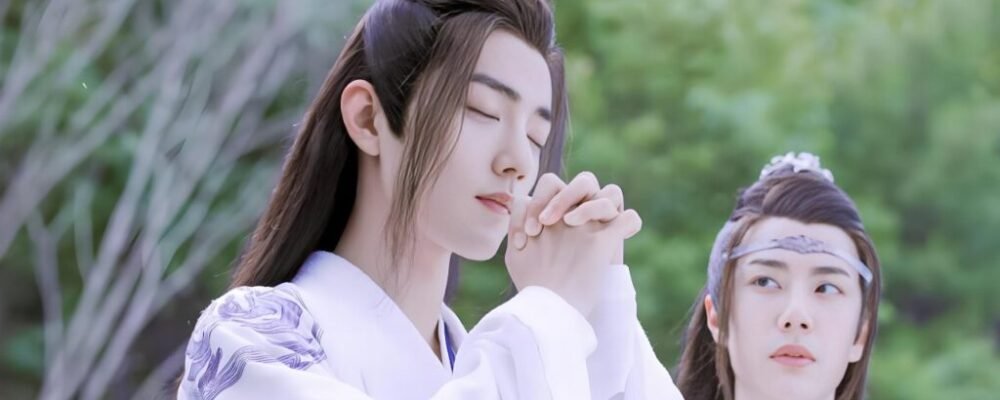
Chapter 3: Adaptation and Censorship in China
Why Censorship Shapes the Question “Is The Untamed a BL?”
The ongoing debate around is The Untamed a BL cannot be separated from China’s strict media regulations. While Mo Dao Zu Shi openly portrays Wei Wuxian and Lan Wangji’s romance, its live-action adaptation had to navigate an environment where BL content is heavily restricted. The result is a drama that leans into coded intimacy, often described as “bromance.” For fans, this creates both fascination and frustration: the love is there, but always implied rather than spoken.
Understanding China’s Media Regulations
Restrictions on BL Themes
China’s National Radio and Television Administration (NRTA) has long limited depictions of same-sex romance on television. Official guidelines emphasize “healthy” portrayals of relationships, effectively censoring LGBTQ+ content.
-
What this means:
-
No overtly romantic gestures (kisses, confessions).
-
Relationships reframed as friendship or loyalty.
-
Storylines emphasizing morality and social harmony.
-
A 2016 regulation specifically discouraged themes that “exaggerate dark sides of society” or “promote abnormal sexual relationships.” This has been widely interpreted as a ban on explicit BL narratives (China Law Translate, 2016).
Why The Untamed Passed Censorship
By presenting the Wei Wuxian–Lan Wangji relationship as profound brotherhood, The Untamed successfully aired on Tencent Video and later gained international distribution. While this diluted the BL elements, it also allowed the series to reach millions worldwide.
The Creative Compromise – Bromance as Adaptation
Subtext Over Explicit Romance
Instead of love declarations, the drama relied on symbolic moments:
-
Wei Wuxian touching Lan Wangji’s forehead ribbon.
-
Shared music scenes (the flute Chenqing and the guqin Wangji).
-
Co-parenting A-Yuan/Lan Sizhui.
These choices fueled passionate fandom debates. Some felt the adaptation preserved the essence of romance; others saw it as erasure.
Pros and Cons of the Bromance Approach
Pros:
-
Enabled release under Chinese censorship.
-
Broadened accessibility to global mainstream audiences.
-
Increased emotional depth through subtle storytelling.
Cons:
-
Disappointed fans seeking explicit LGBTQ+ representation.
-
Sparked endless debates around is The Untamed a BL.
-
Risked reinforcing the invisibility of queer relationships in Chinese media.
Comparative Analysis – BL Abroad vs. BL in China
In Thailand, BL dramas like 2gether are marketed openly and celebrated as part of mainstream pop culture. In South Korea, BL web dramas are emerging on platforms like Viki and YouTube. These works emphasize romance without censorship, helping normalize LGBTQ+ narratives globally.
In contrast, China’s approach restricts what can be shown on screen. The tension between the source novel and its adaptation highlights how creative industries navigate state boundaries.
👉 For a closer look at how The Untamed succeeded despite these restrictions, see The Untamed Success: A Phenomenon in Xianxia Drama.
Evidence-Based Insights – The Impact of Media Censorship
Censorship does more than alter storylines; it affects audience psychology and cultural discourse.
-
Representation matters: Studies confirm that visibility of LGBTQ+ identities in media improves well-being and reduces stigma (American Psychological Association, 2017).
-
Censorship consequences: Research from Health Communication (PubMed ID: 28598790) notes that suppressing minority representation can reinforce stereotypes and limit social acceptance.
Thus, while The Untamed gained mainstream reach, its sanitized romance underscores the ongoing challenges of representation in Chinese television.
Fan Response and Cultural Impact
Fans didn’t stay silent. Online discussions, fan fiction, and fan art filled the gaps left by censorship. The BJYX fandom (Bojun Yixiao, Xiao Zhan × Wang Yibo pairing) exploded globally, reframing the drama’s subtext as explicit fan-created narratives.
At the same time, controversies like the 2020 “AO3 incident” revealed how censorship impacts fan communities. When Chinese authorities restricted access to Archive of Our Own, backlash highlighted the growing tension between creative freedom and state control. More on this dynamic can be found in Bojun Yixiao Fandom: The Force Behind a Global Phenomenon.
Recommendations for International Viewers
-
Watch with cultural awareness: Understand that adaptation choices stem from regulatory limits, not a lack of romance in the story.
-
Explore the novel or donghua: These offer a fuller picture of Wei Wuxian and Lan Wangji’s relationship.
-
Engage responsibly in fandoms: Recognize the difference between celebrating fictional love and speculating about real actors.
-
Support global BL productions: Broader representation strengthens cultural exchange and normalizes diverse love stories.
Final Thoughts – The Power of Subtext
So, is The Untamed a BL? The answer remains layered: the source novel is undeniably BL, but the drama is a censored adaptation reframed as bromance. Yet, this very compromise is what enabled the show to transcend borders, sparking conversations about censorship, love, and representation.
In many ways, The Untamed proves that even within restrictions, storytelling can inspire millions. Its success reflects not just the limits of Chinese media, but also the creativity of fans who continue to reimagine and reclaim the narrative.
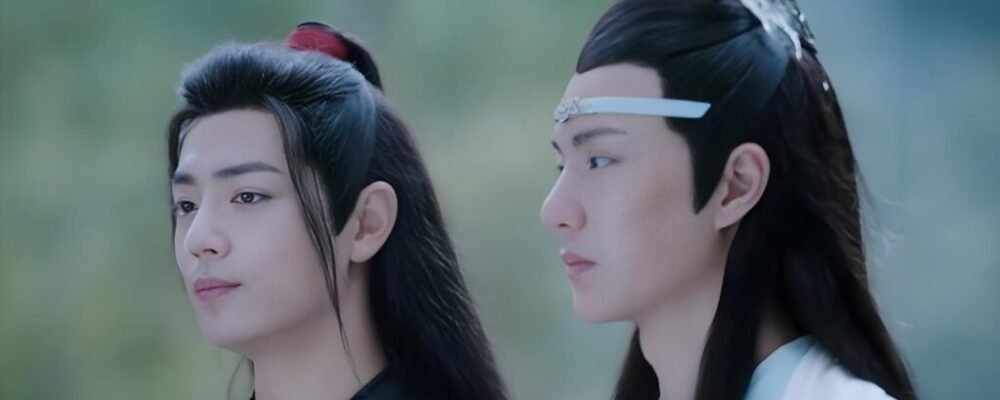
Chapter 4: WangXian and Fandom Culture
From “Is The Untamed a BL?” to the Rise of WangXian
When viewers ask is The Untamed a BL, one of the first things they discover is WangXian—the ship name for Wei Wuxian and Lan Wangji. In the novel Mo Dao Zu Shi, WangXian is canon: a love story that culminates in a lifelong partnership. In the drama, however, censorship reframes their relationship as profound brotherhood. This tension between source and adaptation is what fuels global fan engagement.
Despite limited on-screen intimacy, fans embraced WangXian as the heart of the series. Their bond—expressed through music, loyalty, and unspoken devotion—became a cultural touchstone, transforming The Untamed from just another fantasy drama into a phenomenon.
Why WangXian Resonates Globally
Emotional Intensity Over Physical Romance
Instead of kisses or confessions, the drama shows quiet moments: shared gazes, mutual sacrifice, and subtle gestures like the forehead ribbon scene. For many international fans, these understated cues create a deeper sense of intimacy than overt romance might.
Representation in Subtext
Academic studies show that even coded or subtextual LGBTQ+ relationships can positively impact audiences seeking recognition (Journal of Homosexuality, 2021). However, scholars also caution that subtext should not replace authentic representation in the long run (Harvard Kennedy School, LGBTQ Policy Journal, 2019).
The Power of Fandom – From WangXian to BJYX
Shipping in Fandom Culture
“Shipping” (pairing characters together) is a cornerstone of fandom. WangXian quickly became a global ship, inspiring fanfiction, fan art, and video edits across platforms like AO3, Twitter, and YouTube.
From Characters to Actors – The BJYX Phenomenon
Beyond the fictional pairing, fans also created BJYX (Bojun Yixiao)—a ship combining actors Xiao Zhan and Wang Yibo. While WangXian focuses on the story characters, BJYX extends the fantasy into real-person fan culture. This phenomenon has its own controversies, as speculating about actors’ private lives can cross boundaries. A deeper analysis of this trend can be found in Bojun Yixiao: The Chemistry That Redefined On-Screen Friendship.
Pros and Cons of WangXian-Centered Fandom
Pros:
-
Global reach: WangXian helped introduce Chinese danmei culture to international audiences.
-
Creative output: Fanfiction and fan art broadened the universe beyond what censorship allowed.
-
Community building: Fans connected across languages and cultures, forming lasting online networks.
Cons:
-
Misinterpretation risk: Some new fans think the drama explicitly shows BL, fueling confusion about is The Untamed a BL.
-
Real-person shipping controversies: BJYX fandom sparked debates about respecting actors’ privacy.
-
Polarization: Fandom wars occasionally overshadowed appreciation for the story itself.
Fandom in Action – Global Platforms and Trends
-
Fanfiction: AO3 (Archive of Our Own) hosts thousands of WangXian works. When China blocked AO3 in 2020, the incident highlighted the tension between censorship and fan creativity.
-
Fan videos: YouTube is filled with WangXian compilations, music videos, and fan edits—check examples like this fan tribute.
-
Merchandise & Cosplay: From Chenqing flutes to blue forehead ribbons, fan-made products keep the ship alive offline.
-
Social media hashtags: #WangXian and #BJYX trended on Twitter and Weibo, often linked to major anniversaries or actor appearances.
For more on how fandom shaped the drama’s global reception, see Bojun Yixiao Fandom: The Force Behind a Global Phenomenon.
Recommendations for Engaging With WangXian Culture
-
Start with the canon: Read the novel Mo Dao Zu Shi to understand WangXian as intended by the author.
-
Watch with nuance: Appreciate how The Untamed conveys romance through subtext, a creative workaround to censorship.
-
Join fandom respectfully: Enjoy WangXian content while recognizing boundaries between fiction and real actors.
-
Balance perspectives: Celebrate the creativity of fan works while acknowledging their limitations as non-canon.
Final Thoughts – Why WangXian Matters in the BL Debate
At its core, WangXian is why fans keep asking is The Untamed a BL. The pairing embodies both the promise of representation and the compromises of censorship. In the novel, it is an explicit love story; in the drama, it becomes a coded romance interpreted by fans.
Far from being a weakness, this duality strengthened The Untamed’s cultural impact. It allowed different audiences to find meaning—some seeing brotherhood, others love, and many appreciating both. WangXian thus stands as a symbol of how fandom can bridge cultural divides, turning one show into a global movement.
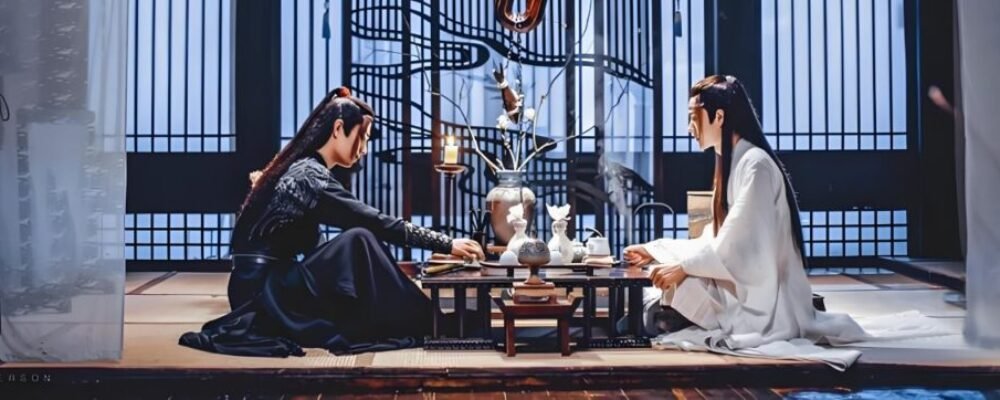
Chapter 5: So… Is The Untamed a BL?
Answering the Big Question – Is The Untamed a BL?
After exploring its source novel, adaptation process, censorship issues, and fan culture, we arrive at the central question: is The Untamed a BL? The answer depends on where you look.
-
Yes — in the novel. Mo Dao Zu Shi confirms Wei Wuxian and Lan Wangji’s relationship as canon romance, placing it firmly within the danmei (BL) genre.
-
Not explicitly — in the drama. The Untamed reframes that romance into profound brotherhood and coded intimacy due to censorship.
This duality explains why fans continue to debate the show’s label years after its release.
The Short Answer vs. The Full Truth
The Short Answer
The Untamed is not technically a BL drama in its live-action form. It’s an adaptation of a BL novel reimagined as bromance.
The Full Truth
-
For readers: The BL identity is undeniable. The novel delivers explicit commitment, shared family life, and queer representation.
-
For viewers: The drama offers an emotional love story through subtext and symbolism, but avoids direct romantic language or gestures.
-
For global fans: Whether you call it BL or not, the emotional intensity resonates the same way BL dramas do.
Why the Debate Still Matters
Asking is The Untamed a BL isn’t just semantics—it reflects broader cultural questions:
-
Representation: LGBTQ+ visibility remains limited in Chinese media. Even subtextual portrayals can be empowering for viewers.
-
Censorship: State restrictions forced compromises, which frustrated some fans but enabled the drama’s release to millions.
-
Globalization: For many international fans, The Untamed served as their first exposure to danmei literature and Chinese xianxia culture.
👉 For a broader cultural perspective, see The Untamed Legacy: Why It Still Matters in 2025.
Comparative Lens – BL Worldwide vs. The Untamed
In Thailand and Korea, BL dramas like 2gether or Semantic Error openly market male–male romance, normalizing it for mainstream audiences. These productions highlight the power of representation without compromise.
By contrast, The Untamed represents a unique case: a BL novel adapted under censorship, gaining global acclaim despite restrictions. This contrast underscores how different cultural systems shape the same genre.
External research supports this divide. Studies show that LGBTQ+ representation improves self-esteem and community support (PubMed ID: 29369244), while censorship limits visibility and perpetuates stigma (Health Communication, 2017).
Pros and Cons of Labeling The Untamed a BL
Pros:
-
Helps international fans connect the drama to its danmei roots.
-
Places the show within a larger global BL discourse.
-
Recognizes the romance that exists in the source material.
Cons:
-
Can mislead viewers expecting explicit romance in the drama.
-
Oversimplifies the adaptation’s cultural compromises.
-
Risks downplaying the uniqueness of danmei as a genre distinct from Japanese/Korean BL.
Recommendations for Fans and Viewers
-
New to the story? Start with the drama, then explore the novel for the complete BL romance.
-
Curious about adaptation choices? Read The Untamed Behind the Scenes, which explains how production navigated censorship.
-
Interested in fandom culture? Explore Bojun Yixiao Phenomenon: Reshaping China’s Entertainment.
-
Want more BL content? Compare with openly marketed BL dramas abroad to see how different cultures approach the genre.
Final Thoughts – A Drama That Redefined Boundaries
So, is The Untamed a BL? The nuanced answer is: yes in spirit, no in technicality. The novel gives us a canon BL romance, while the drama delivers a censored but emotionally rich adaptation. Together, they created a cultural bridge—introducing danmei to global audiences, sparking fan movements, and igniting debates about censorship and representation.
Rather than focus on labels alone, it may be more valuable to celebrate what The Untamed achieved: a groundbreaking drama that transcended borders, brought Chinese fantasy to the world stage, and opened conversations about love, freedom, and creativity.
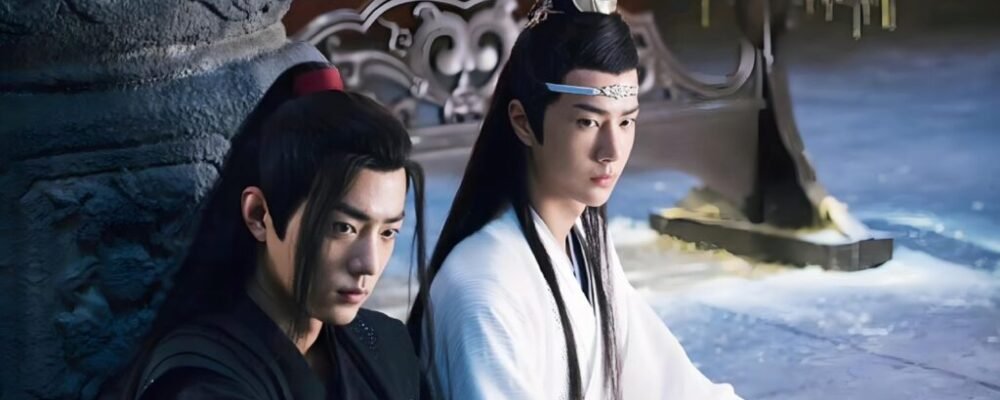
Chapter 6: Frequently Asked Questions (FAQ)
Is The Untamed a BL drama?
Technically, no. The live-action drama is a censored adaptation of the BL novel Mo Dao Zu Shi. In the book, Wei Wuxian and Lan Wangji are a canon couple; in the drama, their love is coded as deep brotherhood and emotional devotion. For a detailed breakdown, see Is The Untamed a BL Drama? What Global Fans Need to Know.
What is the difference between BL and danmei?
BL (Boys’ Love) is a global genre, popular in Japan, Thailand, and Korea, showing explicit male–male romance. Danmei (耽美) is the Chinese version, often set in fantasy or historical contexts, but usually censored in adaptations. The Untamed comes from danmei source material, which explains why fans often ask is The Untamed a BL.
Where can I watch The Untamed with English subtitles?
You can stream The Untamed on Viki, Netflix (in some regions), and YouTube (Tencent official channel). Availability varies by country, so check your local platform listings. More on this topic is in Why Untamed Still Tops Global Watchlists.
What is WangXian in The Untamed?
WangXian is the ship name for Wei Wuxian and Lan Wangji. In the novel, their romance is explicit; in the drama, it is expressed through symbolism, loyalty, and subtle gestures. This pairing is the core reason people debate is The Untamed a BL.
What does BJYX mean in fandom?
BJYX (Bojun Yixiao, 博君一肖) is the fan pairing of actors Xiao Zhan and Wang Yibo. Unlike WangXian, which refers to fictional characters, BJYX is a real-person fandom phenomenon. For an in-depth look, read Bojun Yixiao Phenomenon: Reshaping China’s Entertainment.
Who is A-Yuan in The Untamed?
A-Yuan is the orphan Wei Wuxian saves, later raised by Lan Wangji as Lan Sizhui. He symbolizes the shared family bond between the two leads, reinforcing the novel’s BL roots even though the drama frames it subtly.
Why was The Untamed censored?
China’s broadcasting guidelines restrict BL portrayals. To pass censorship, the drama reframed romance as brotherhood and avoided overt romantic gestures. For context, see The Untamed Behind the Scenes.
What is the OST song “Unrestrained” about?
“Unrestrained (无羁),” sung by Xiao Zhan and Wang Yibo, is the main theme of The Untamed. Its lyrics mirror the bond between Wei Wuxian and Lan Wangji—free-spirited yet loyal—adding musical depth to their relationship.
How popular is The Untamed worldwide?
The drama has been streamed billions of times on Tencent and continues to trend on Netflix and Viki. It introduced danmei culture to global audiences, becoming a milestone in C-drama history. More on its legacy: The Untamed Legacy: Why It Still Matters in 2025.
Final Takeaway
While the drama is not officially labeled BL, its danmei roots make it impossible to separate from BL discourse. That’s why fans worldwide continue to ask—and debate—is The Untamed a BL.
Please log in to access your exclusive content.
Don’t have an account? Click the “Register” button below to sign up.
